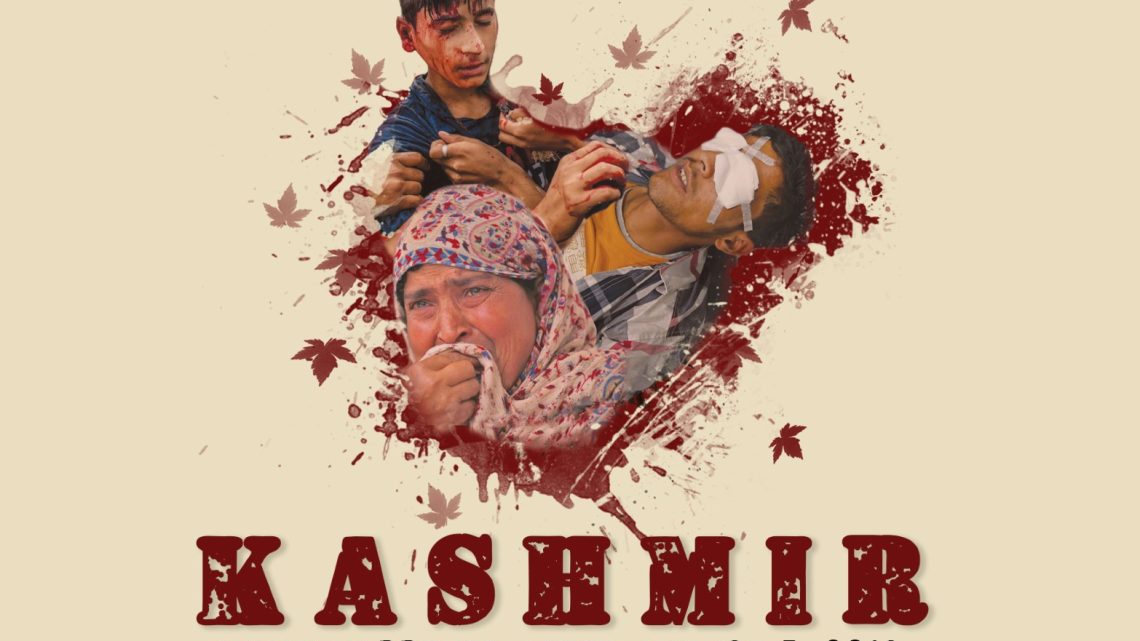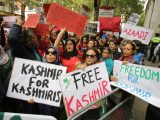
Human Rights Watch Highlights Ongoing Abuses in IIOJK Five Years after Article 370 Abrogation
August 2, 2024Five years after India’s government revoked the special autonomous status of Jammu and Kashmir on August 5, 2019, severe restrictions on freedom of speech and association persist in the region, according to Human Rights Watch. The Indian authorities continue to enforce repressive measures, including arbitrary detentions and extrajudicial killings, which have led to serious human rights violations.
Despite claims of reduced violence, fundamental freedoms in Kashmir remain under assault. Meenakshi Ganguly, Deputy Asia Director at Human Rights Watch, noted that Kashmiris live in fear of expressing themselves or assembling peacefully, fearing arrest and imprisonment without trial. This environment of suppression was evident in March 2024, when protesters in Ladakh demanded more governance rights, while religious minorities and migrant workers faced targeted violence. Hundreds of Kashmiris, including journalists and human rights activists, remain detained under stringent counterterrorism laws.
Prominent civil society figures continue to face politically motivated charges. For instance, in July 2024, authorities arrested Nazir Ahmad Ronga, chairman of the Jammu and Kashmir High Court Bar Association, under the Public Safety Act, a law criticized for its misuse. Similarly, former association president Mian Abdul Qayoom was arrested on false charges, leading to the banning of bar association elections by the BJP administration, which feared potential unrest.
The plight of Kashmiri human rights defender Khurram Parvez exemplifies the ongoing repression. Detained since November 2021 under the Unlawful Activities Prevention Act (UAPA), Parvez has become a symbol of the government’s harsh crackdown on dissent. UN experts have repeatedly called for his release, highlighting the broader pattern of harassment and prolonged detention faced by journalists and activists in India.
Journalists in Kashmir continue to operate under severe pressure, with at least 35 facing police interrogations, raids, threats, and fabricated criminal cases since August 2019. A media policy introduced in June 2020 further tightened the grip on press freedom, enabling easier censorship. A 2024 policy aimed at protecting public officials from false complaints further eroded accountability and press freedom, raising concerns about the government’s commitment to transparency.
The misuse of counterterrorism laws has also become a tool for silencing peaceful critics. UAPA cases have surged in Jammu and Kashmir, with the region recording the highest number of cases in India in 2022. The internet shutdown that began in 2019, lasting over 500 days, severely impacted daily life, disrupting communication, access to essential services, and the local economy.
Indian forces continue to be implicated in various abuses, including harassment, arbitrary detention, and extrajudicial killings. The Armed Forces (Special Powers) Act (AFSPA) has provided them with effective immunity from prosecution, ensuring that justice remains elusive for victims of these violations.
Human Rights Watch urges Indian authorities to reassess their approach to Jammu and Kashmir, prioritize justice for victims, and hold abusive forces accountable for their actions. The ongoing situation underscores the need for a shift in policy that respects the rights and freedoms of the Kashmiri people.

